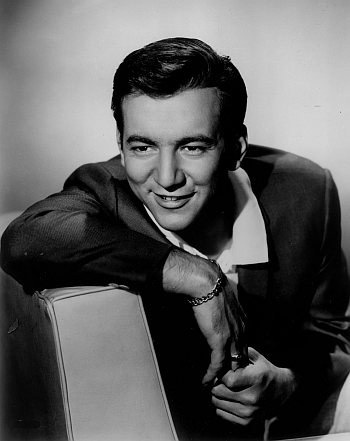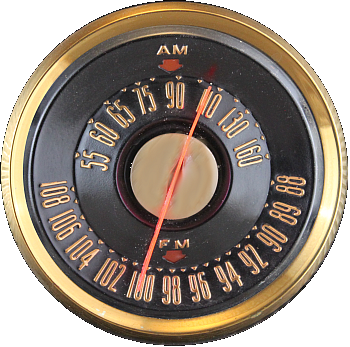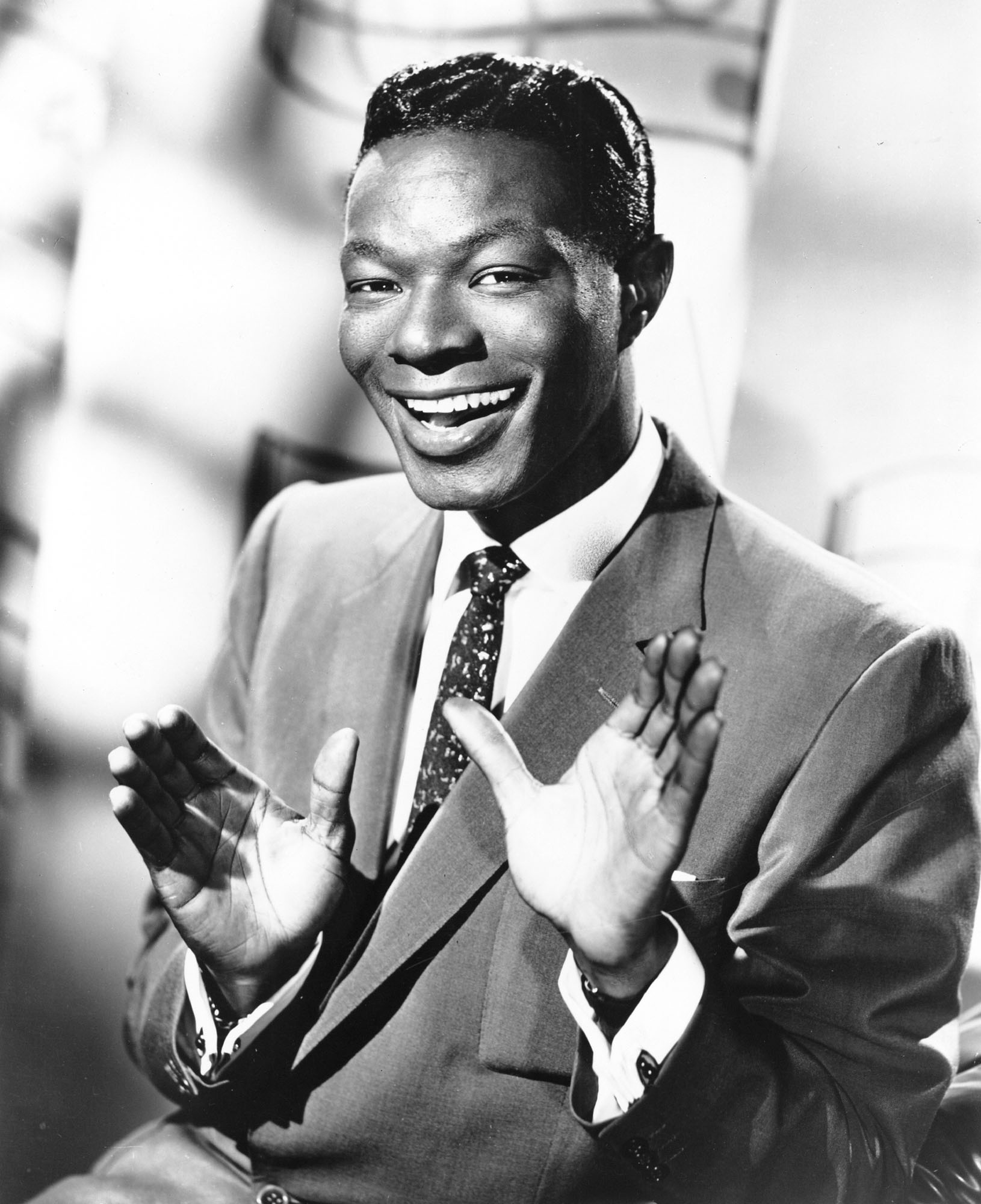It’s funny how our tastes in music change as we get older. Maybe you haven’t experienced it yet but if you have achieved an advanced age, as I have, you probably know what I’m talking about.
Those of us who grew up in white, middle-class homes rejected the music of our parents. We hated Mitch Miller and Percy Faith; they were so white and middle-class. We liked more exciting, important stuff. Elvis got us shakin’, folk music had a message, blues spoke to us, country was more real, and everything else was schmaltz. We searched and found a whole lot out there.
Now, while I still love Howlin’ Wolf and Hank Williams, I’m sometimes inclined to listen to Dean Martin or Patti Page. OK I admit it, I even like (some) Perry Como. They were all great singers and their records sound good. I’m not ready for Lawrence Welk yet, but I fear it might be coming on.
1950s pop has taken a bad rap for too long. It was the bridge between big band and rock ‘n’ roll and we’ll never see anything like it again.
It’s accused of being music made for people who didn’t really care about music, stealing it’s inspiration from blues, country and gospel. The same thing could be said of rock ‘n’ roll. In the 1950s the two camps hated each other but now, it seems they were just variations of the same thing.
Rock ‘n’ roll gets all the credit but pop wasn’t an artistic wasteland; there were some very talented artists and the music was culturally important.
Those old pop records are not just easy on the ear; they are well crafted masterpieces. Pop music ushered in the new era of record producer and the charge was lead by, OMG, Mitch Miller and Percy Faith.
1950s pop has its roots in 1930s and 40s big band and swing. Back then the focus was on the band or bandleader, vocalists were secondary but some singers, especially Bing Crosby, understood that the new electronic microphones meant you didn’t have to shout, or project like you were on stage anymore. Soft, intimate, nuanced vocals would get, and keep the listeners’ attention. By the 1940s Frank Sinatra, who was with the Tommy Dorsey orchestra, was a bigger star than his boss.
When big bands became economically unviable, the singers took over. Even though they often recorded with a full orchestra, the spotlight was now on the singer. Mitch Miller, most successful producer of the era, changed the recording process. Instead of recording performances, he made records. They were mini-stories with sound effects like the lashing whip in Frankie Laine’s Mule Train. As the Artist and Repertoire man at Columbia, he got to say who sang what. He paired singers with songs the way a movie producer would pair actors with certain roles. He would even have one artist do a pop version while another did a country version of a song, though often it was pretty hard to tell the difference. In Mitch Miller’s hands everything was pop.
Producers at all the other major record companies followed suit and in the early 1950s, pop records completely dominated the sales charts.
Most of the singers had started out in other genres. Nat King Cole was a successful, and brilliant jazz pianist, Patti Page started singing country, Frankie Laine was a jazz man, Kay Starr sang both jazz and country, and very well. They all switched to making pop records because that’s where the money was. The post war boom was fueling a growing, affluent, middle class of people who had lived through the Depression and war and were now ready to enjoy the comforts of modern life.
Then, of course, Elvis Presley came along and everything changed. Middle class children were bored living in the suburbs and craved some excitement. Rock ‘n’ roll squeezed the pop singers out of the top spots but they never went away. CHUM radio in Toronto championed rock ‘n’ roll but still played a lot of pop music, mostly during the midday when the kids were in school, and despite their claim of being number one they never really beat adult-oriented CFRB in the overall ratings
Nevertheless, rock ‘n roll got most of the attention and the money. It was new, brash, rebellious and in-your-face cocky. The pop singers (and most adults) hated it. Nat King Cole even recorded a song Mr. Cole Won’t Rock & Roll; his live show featured a ten minute version wherein he parodied some of the sillier aspects of the upstart music.
For their part, rock ‘n’ roll singers seemed to take particular delight in recording rock ‘n’ roll versions of pop standards, especially Nat King Cole’s. Take that Nat. But there was always a lingering sense, even among the teen stars themselves, that it wasn’t really legitimate music. While they were enjoying the wild ride they knew this whole teen idol thing had a short shelf life. Frank Sinatra, the original teen idol (they were called bobby-soxers back then) managed to grow up with his audience but how do you do that when you’ve been defiantly anti-adult for your entire career?
 Some snuck out the back door into country music, others dabbled with smoother love songs, but it was Bobby Darin who showed everybody the way.
Some snuck out the back door into country music, others dabbled with smoother love songs, but it was Bobby Darin who showed everybody the way.
Darin had found huge success as a teen rocker. Though not menacing, his records like Splish Splash and Early in the Morning were pure, unbridled energy. In early 1959 he released Dream Lover, a more reserved, introspective piece but still very teen oriented. Later in the year, over the protests of his handlers, he took the bold step of recording Mack the Knife, the theme from Bertold Brecht’s Threepenny Opera that had been a pop hit for Louis Armstrong three years earlier. Instead of doing a rock ‘n’ roll send up, he channeled his inner Frank Sinatra and did a fully orchestrated, traditional version that even ‘Ol Blue Eyes himself admitted was the best ever recorded.
The massive success of Mack the Knife was another game changer. Darin followed it up with Beyond the Sea which was even better and he played at the ultimate establishment nightclub, The Copacabana. Darin managed to sing adult music without alienating his core teen audience, he made it ok for youngsters to listen to well-crafted, jazzy pop, maybe there was something to this stuff after all.
When Elvis got out of the army in 1960 he came back sounding more like his hero Dean Martin than the rock-a-billy cat he was before.
Now, in our dotage, we can appreciate that Nat King Cole wasn’t just a smooth crooner; he was perhaps the best song interpreter ever. Patti Page’s lilting versions of country songs like The Tennessee Waltz are just darn pleasant to listen to, Perez Prado’s music was corny but irresistible and Percy Faith really was a brilliant arranger.
Too bad our kids don’t appreciate good music like we do.

